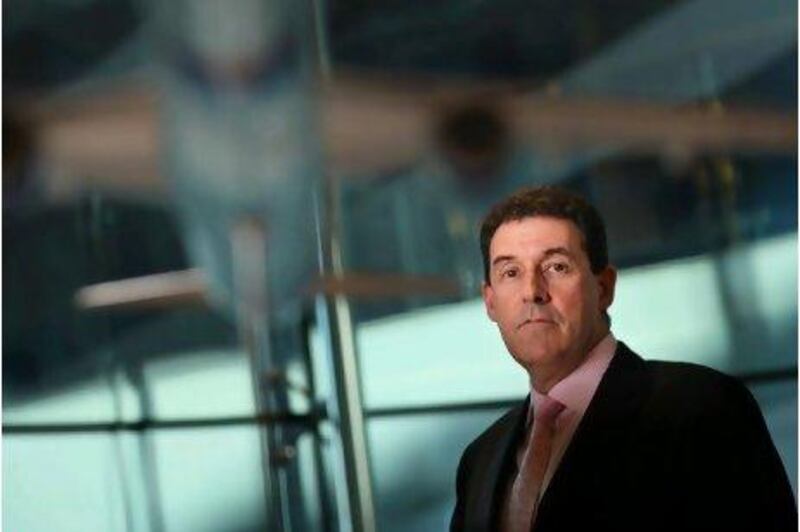The EU's decision last year to ban all aircraft regulated by Afghanistan from airports in the European bloc has been a blow to the country's second-largest airline, Safi Airways, a top executive says.
Dozens of staff have been laid off, the top management has been replaced, and there are plans to cut back on the number of planes.
Michael McTighe, the recently appointed chief operating officer of the airline and a former managing director of Arik Air in Nigeria, said the recent months had been challenging because the airline's service between Kabul and Frankfurt had been its most profitable.
The ban came "out of nowhere" and forced the company to lease a European-registered aircraft at peak rates to meet obligations to customers. "We had originally hoped to make a profit in 2011, but that is now pushed back to 2012," Mr McTighe said. "We are looking at a year of consolidation."
Mr McTighe said he expected the ban to last between three and five years - the period it might take Afghanistan's civil aviation authority to improve its regulation of the aviation industry and meet European standards.
Ariana Afghan Airlines had already been banned from the EU by the authorities there, but on November 23 last year the ban was expanded to all airlines regulated by the Afghan government.
Siim Kallas, the EU transportation commissioner, said at the time: "Where we have evidence that air carriers are not performing safe operations or where the regulatory authorities fail in their obligation to enforce the safety standards, we must act to ensure there will be no risks to safety."
The family-owned Safi vies with carriers such as flydubai, Ariana and Kam Air, another Afghan airline, to transport primarily expatriates working in Afghanistan. Safi flies twice daily between Kabul and Dubai.
Afghan airlines face difficult operating conditions, with fuel sold at three times the price in Dubai, the necessity of buying extra insurance for war zones and an airport shared with military operations that sometimes delay civilian flights by several hours.
After the EU ban, Safi had to reduce its staff by more than 30, leaving it with fewer than 100. It is selling three of its five aircraft so that it can focus on its Dubai-Kabul service.
Mr McTighe said the moves were a "direct consequence of the ban". He was appointed two months ago, along with John Roijen as chief financial officer and Mohammad al Hayek as deputy chief operating officer.
"It's a clean-up exercise right now," Mr McTighe said. "We are retrenching, but we are also focusing on improving our services."
New uniforms were being created and Safi would be upgrading its business-class cabins in a bid to hold the title of the higher-end airline flying into Afghanistan, especially as more international businessmen are travelling there to take advantage of opportunities in mineral extraction and in the country's rebuilding process.
To prepare against more governments banning aircraft registered in Afghanistan, including the possibility of the UAE taking action, Safi is seeking an air operator's certificate from a Gulf country so that its aircraft will be regulated by an authority other than Afghanistan's. Mr McTighe said that could take as long as eight months.
After selling its two Boeing 737-300s and negotiating out of its lease for an Airbus A340, Safi would be left with a Boeing 767 and an Airbus A320.
Safi hopes eventually to lease only A320s to create consistency in its fleet and cut costs. Operating different types of planes requires separate crews trained to operate each type of aircraft, adding to expenses.
By next year, Safi could be launching routes to India, Pakistan and Saudi Arabia, Mr McTighe said.





